
Movies are living things that never seem to be quite the same twice. Of course, it’s not that the movies themselves change, but we change and the world changes and our perception of the movies tends to reflect that. While re-watching Peter Medak’s The Ruling Class (1972) for this screening, I realized that my appreciation of the film had taken on something new. Now, bear in mind, this is one of those rare films that I can truly say changed my life (there are really only four of those) and it’s a movie that has been in my personal top five for over 40 years. I saw it innumerable times back in the days of university screenings. I owned (still do actually) a bootleg 16mm copy of it. I know it like the back of my hand — only it’s more entertaining than the back of my hand. But this last time, something had changed.
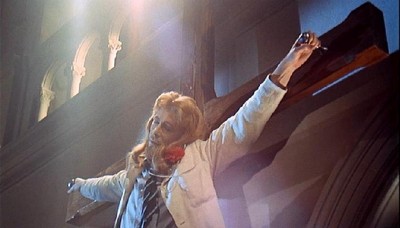
When The Ruling Class came out 40-plus years ago, certain aspects of it seemed almost exclusively British. Oh, the satire on religion and conformity came across loud and clear, as did the playful lunacy of its musical numbers and the growing horror of its second half. No problems there. But remember the source material — the play — had been written by (as was the screenplay) Peter Barnes, a socialist-leaning author whose cleverness and sense of humor masked a deep-seated sense of outrage over the class distinctions in Great Britain. In 1972, we in America didn’t think much in terms of class warfare. If we did, it was the youthful rejection of middle class values — not really the idea of an American ruling class. That may well have been no more than a fantasy on our part, but class distinction wasn’t a hot topic for us. Well, that’s changed now — and the film’s remarks about how much of the country are owned by one percent of the population no longer seems foreign. And the idea of a ruling class that uses religion as a cudgel against the lower classes — brought home chillingly in the film’s penultimate scene in the House of Lords — isn’t a British abstraction anymore. The truth is that The Ruling Class has become more relevant than ever.
Below is what I wrote about the film (with a tweak or two) in 2006:
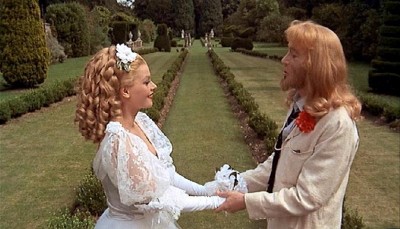
Movies don’t get any better than Peter Medak’s film version (1972) of Peter Barnes’ play (1968) The Ruling Class. In fact, if I had to name the five best films ever made, this would be on that list. Unfortunately, while The Ruling Class held considerable cult status in the 1970s (I have seen 300-plus seat auditoriums sell out twice nightly for an entire weekend at university screenings), it has suffered a decline in subsequent years, thanks in no small part to a botched home video release. When brought out on VHS (remember that?), the film was cut from 154 to 141 minutes. Why? So it would fit on one tape. Unfortunately, that version became the source material for the film’s TV prints, a subsequent VHS reissue and the laser disc release. As a result, a great many people only know the film in this bastardized form.
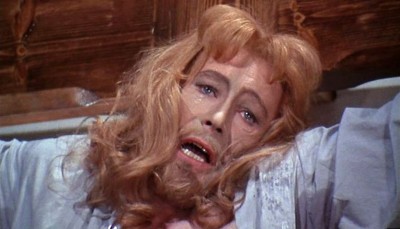
Blessedly, the film was rescued from this insulting treatment a few years ago — using director Medak’s personal 35mm print — and is now back among us as it was originally intended. (This version is actually a bit longer than the original U.S. release print, which trimmed Carolyn Seymour’s stripping scene to get a PG rating.) This version is the goods — and a special screening of it is a treat for a couple reasons. First of all, it’s a comedy (among other things), and as such, it plays better with an audience. The other thing is size. Medak shot the film in a way that preserves the essential theatricality of the piece, using long takes and a fluid camera — an approach which works wonderfully in a theater or even a screening room setup, but one that suffers on a 15-inch television. In this case, size matters.
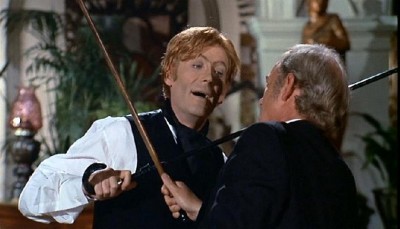
Unlike most films, The Ruling Class is impossible to pigeonhole by genre. Yes, it’s a comedy (albeit a frequently vicious one), and yes, it’s a musical. But it contains moments of true horror, and its theme is neither easy nor comfortable. It’s the story of Jack Gurney, the 14th Earl of Gurney (Peter O’Toole in one of the finest performances ever committed to film), a congenially deranged young man who happens to believe he’s Jesus Christ (a revelation that came to him in “East Acton just outside the public urinal”). He inherits the family title — much to the chagrin of his embarrassed family, who wants to have him put away — when his father (Harry Andrews) accidentally hangs himself (wearing a cocked hat, underpants and a ballet skirt). The catch to this is that he must be married (and he believes he’s already married to Marguerite Gautier, the heroine of Verdi’s La Traviata), and produce an heir, or the estate goes to his greedy relatives — once they get him certified as insane.
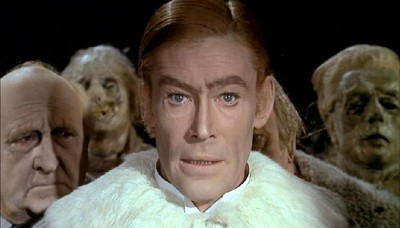
Peter Barnes’ screenplay (adapted with very few changes from his play) is a marvel, filled with magnificent set pieces — “The Varsity Drag” musical number, Jack raising a table (instead of Lazarus, who’d be too decomposed by now), the operatic entrance of a bogus Marguerite Gautier (Carolyn Seymour), the horrific battle between Jack and the “High Voltage Messiah” (Nigel Green), the chilling penultimate scene in the House of Lords, etc. And to what end? It’s a work about people prizing conformity and the status quo over goodness and kindness. If it’s true that a people get the government they deserve, mightn’t it be equally true that a people get the God they deserve? I once drove 300 miles to see this movie (and I don’t regret it), all you have to do is go to the local cinema.
The Asheville Film Society will screen The Ruling Class Tuesday, Jan. 14, at 8 p.m. in Theater Six at The Carolina Asheville and will be hosted by Xpress movie critics Ken Hanke and Justin Souther.


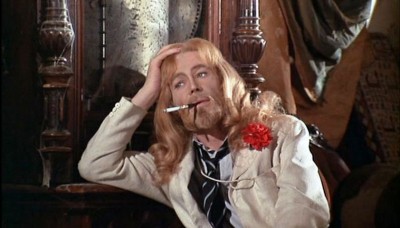
Before you comment
The comments section is here to provide a platform for civil dialogue on the issues we face together as a local community. Xpress is committed to offering this platform for all voices, but when the tone of the discussion gets nasty or strays off topic, we believe many people choose not to participate. Xpress editors are determined to moderate comments to ensure a constructive interchange is maintained. All comments judged not to be in keeping with the spirit of civil discourse will be removed and repeat violators will be banned. See here for our terms of service. Thank you for being part of this effort to promote respectful discussion.